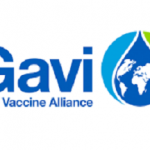End death penalty now, UN chief urges member countries
UN Secretary-General, António Guterres
United Nations Secretary-General, António Guterres, has called on member States to put an immediate end to sentencing criminals to death.
Guterres, in a statement marking the 16th World Day Against Death Penalty, said progress made toward eliminating the death penalty had been ‘marred by setbacks’.
He noted that hundreds of offenders; often impoverished, women or hailing from minority groups have been executed without legal representation or transparent criminal proceedings.
The UN chief argued that legal representation or transparent criminal proceedings might have spared them from the death penalty.
Some 170 Member States have abolished or put a stay on executions, since the UN General Assembly’s first call for a moratorium on its use in 2007.
Guterres noted the lack of transparency in some countries, where the death penalty was still used, underscoring its incompatibility with human rights standards.
The UN scribe said he was “deeply disturbed” in particular, by the number of juvenile offenders being executed.
“Only last week, Zeinab Sekaanvand Lokran of Iran, was executed for killing her husband, when she was 17, despite a trial marred by irregularities. In some countries, people are sentenced to death in secret trials, without due process, increasing the potential for error or abuse,’’ the UN chief regretted.
Guterres called for all nations to abolish the practice of executions adding: “I call on those remaining, to join the majority and put an end to the death penalty now’’.
UN Assistant Secretary-General for Human Rights, Andrew Gilmour, had echoed Guterres concerns.
Gilmour said there was “far too much secrecy, and it’s quite indicative of the fact that although many countries are giving up the practice. Those that retain it, nevertheless, feel that they have something to hide’’.
The UN envoy noted the majority of executions today are carried out in China, Pakistan, Iraq, Iran and Saudi Arabia. (NAN)








